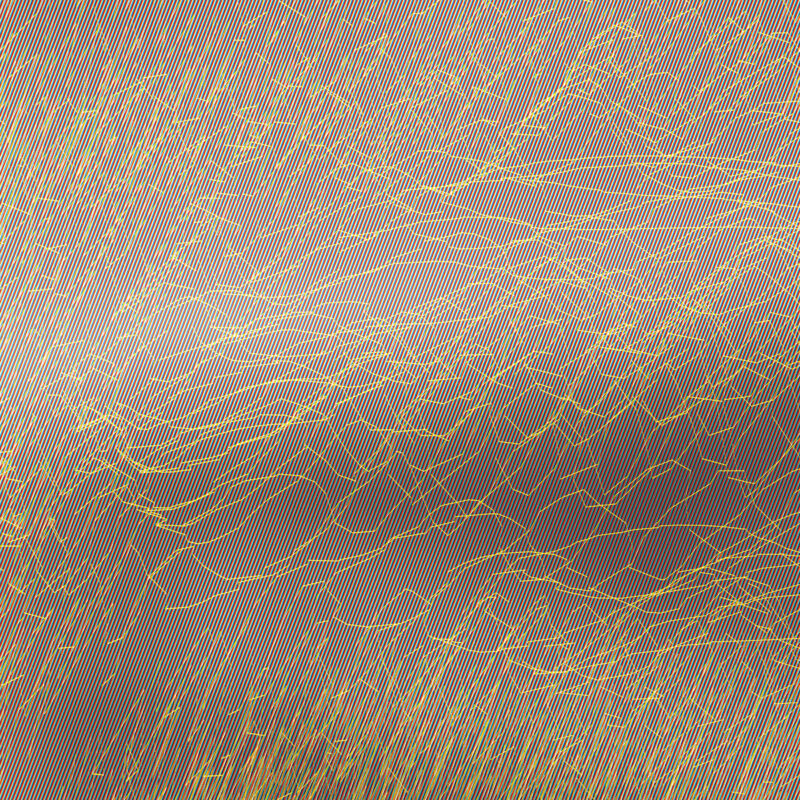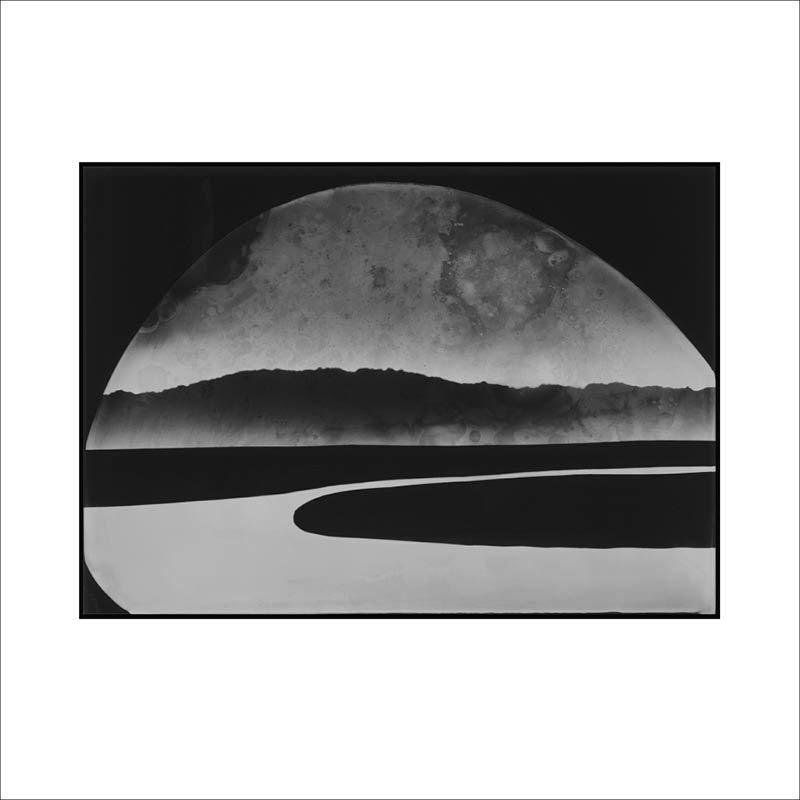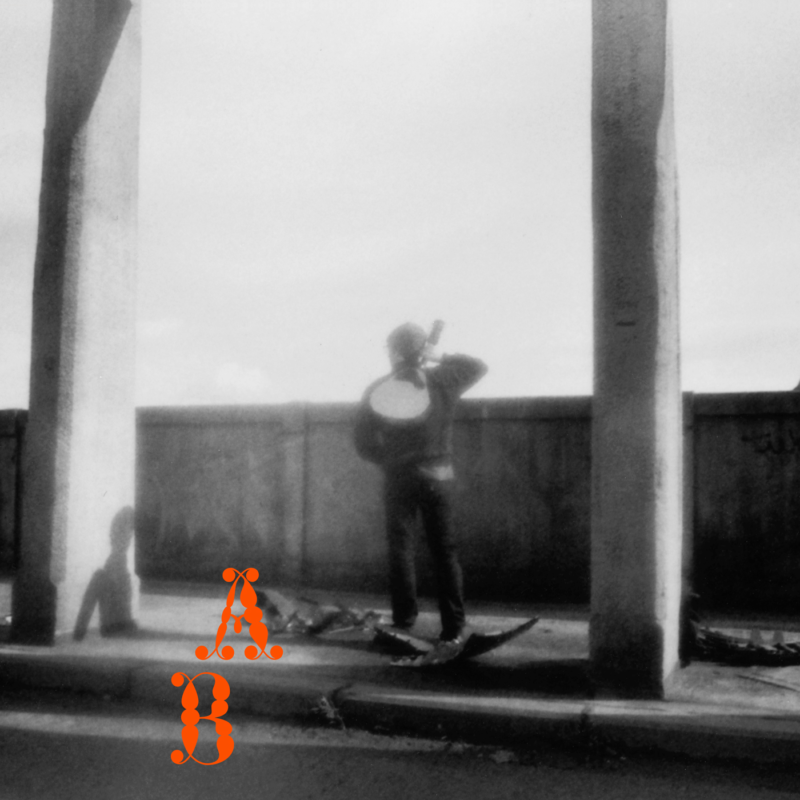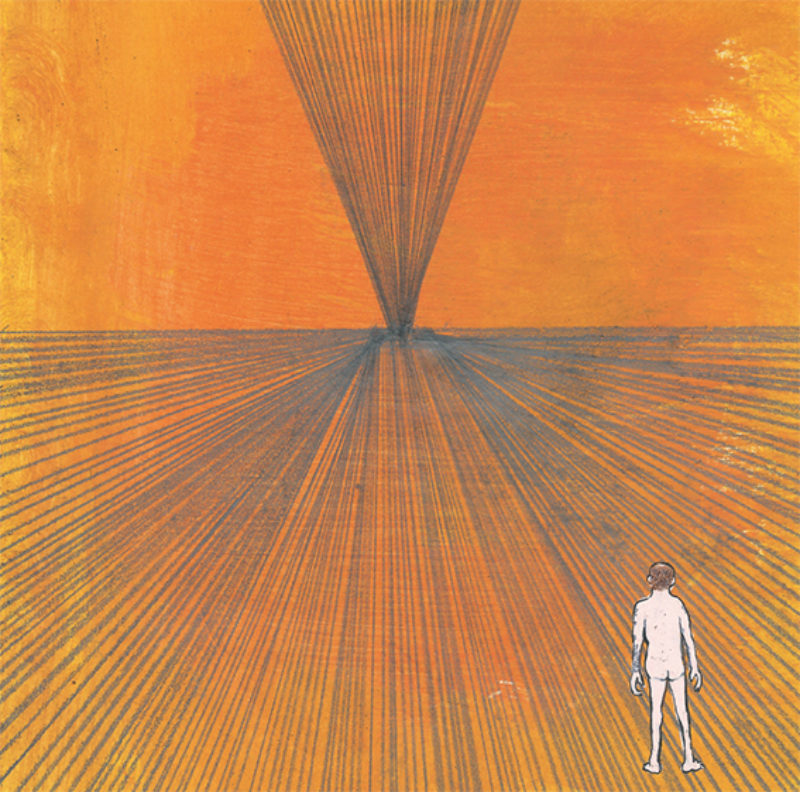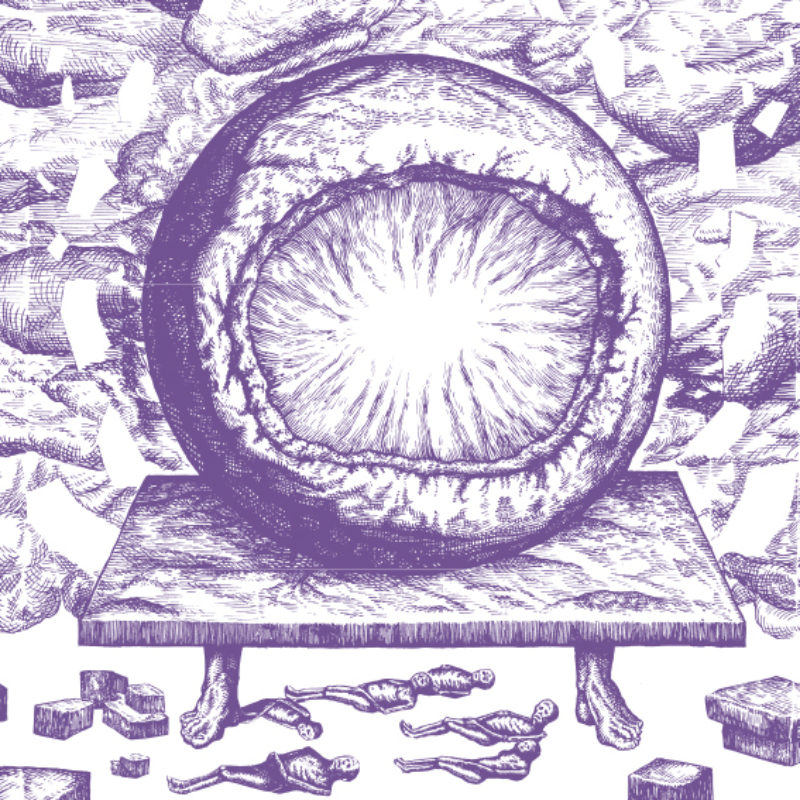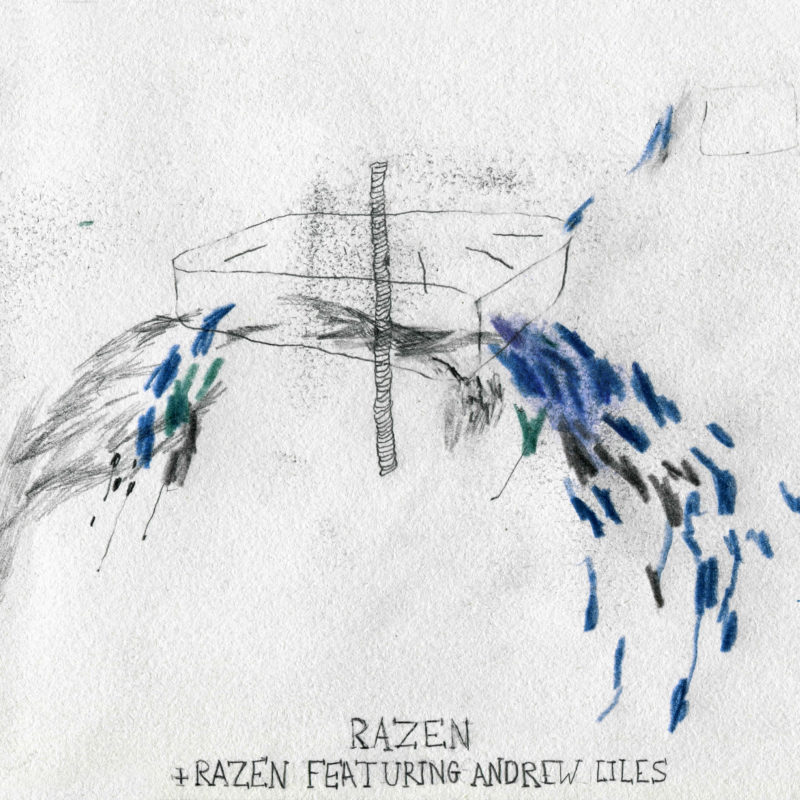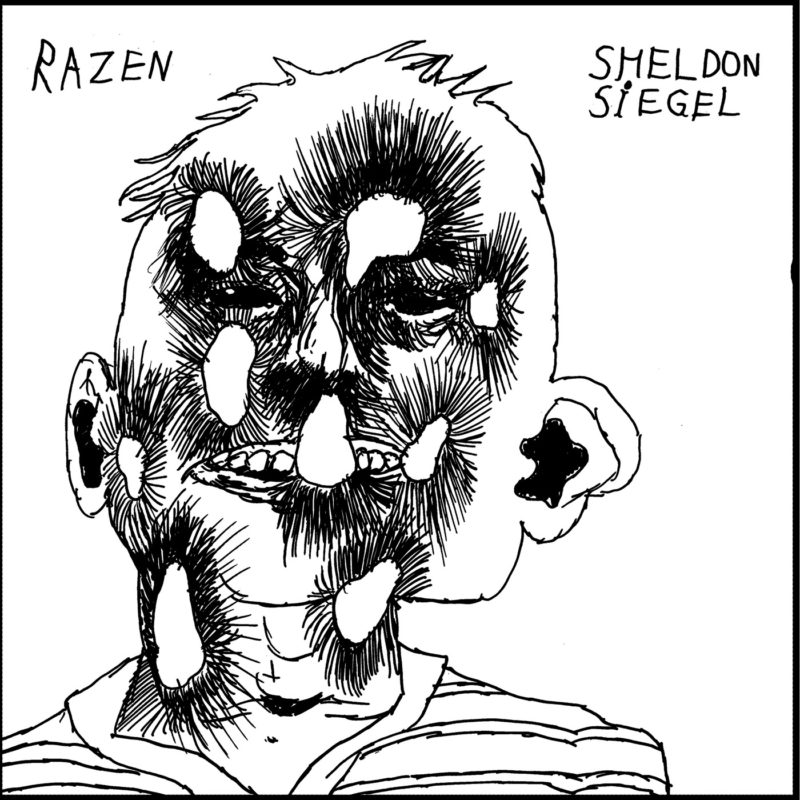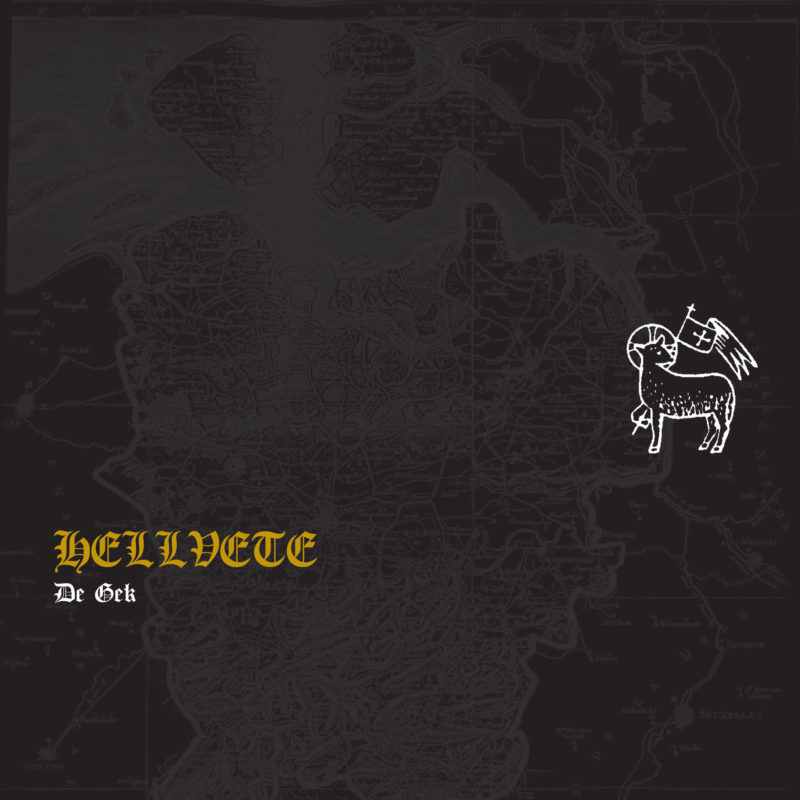HET INTERSTEDELIJK HARMONIUMVERBOND
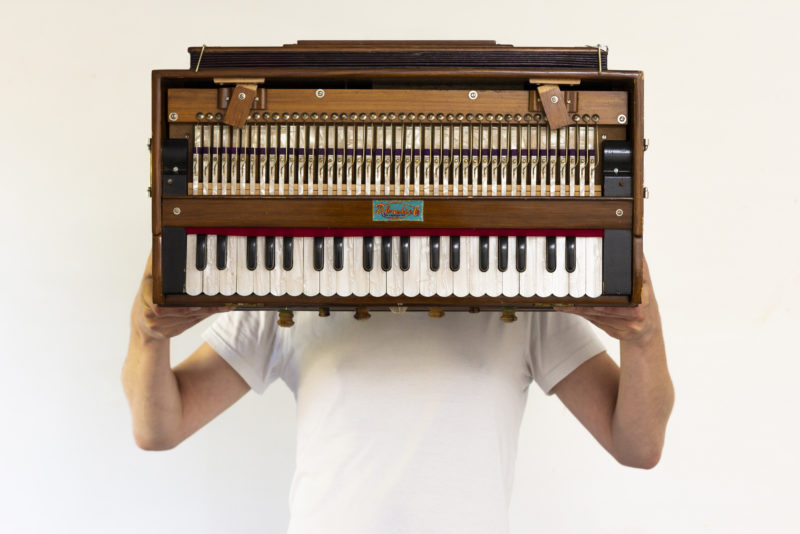
Harmoniumkwartet
KRAAK and Vooruit enabled the project. They helped out with acquiring the four harmoniums and provided logistic support for rehearsals and recordings. I’ve been working on the idea for years. Normally in my solo performances, I use some amount of electronics and tapes to create a kind of layering, but I was very curious about what it would be like to play the recorded pieces in real time on multiple harmoniums, bypassing the restrictions that come with using pre-recorded multi-tracks. Because I cannot clone myself and I do not have four harmoniums, it remained an idea only. One time while having a beer with Wouter, Pauwel and Niels (Vanhaelemeesch, De Buck and Latomme, respectively from Vooruit and KRAAK), I brought the idea up and some time later they asked me if I wanted to work on this project and stage it at the Eastern Daze Festival with their support. I am very grateful for their confidence in me and for giving me the little push I needed to get this train rolling.” Choosing the name was easy. “We live in four different cities, we all play a harmonium and in our playing we want our notes to connect deeply. The name says it all. There are no other meanings. It has to be pure, pure as the air blowing through the reeds of the harmonium.”
Why with Brecht Ameel, David Edren and Steve Marreyt?
“I’ve already made a lot of music with the three of them. With Steve I played in Silvester Anfang and a lot of other groups, with Brecht in Bow Ether/Aether Group and with David in Brahmen Raag. So I already knew their approach to music making, how they listen to music and look at certain things. I feel we're kindred spirits and I like to make music with people that I feel comfortable around. They know what kind of music I make, how it works and who I am. I don’t have to explain them everything, which makes working easier and gives it a natural feel. And I am a fan of their work, so the choice to involve them was obvious to me.”
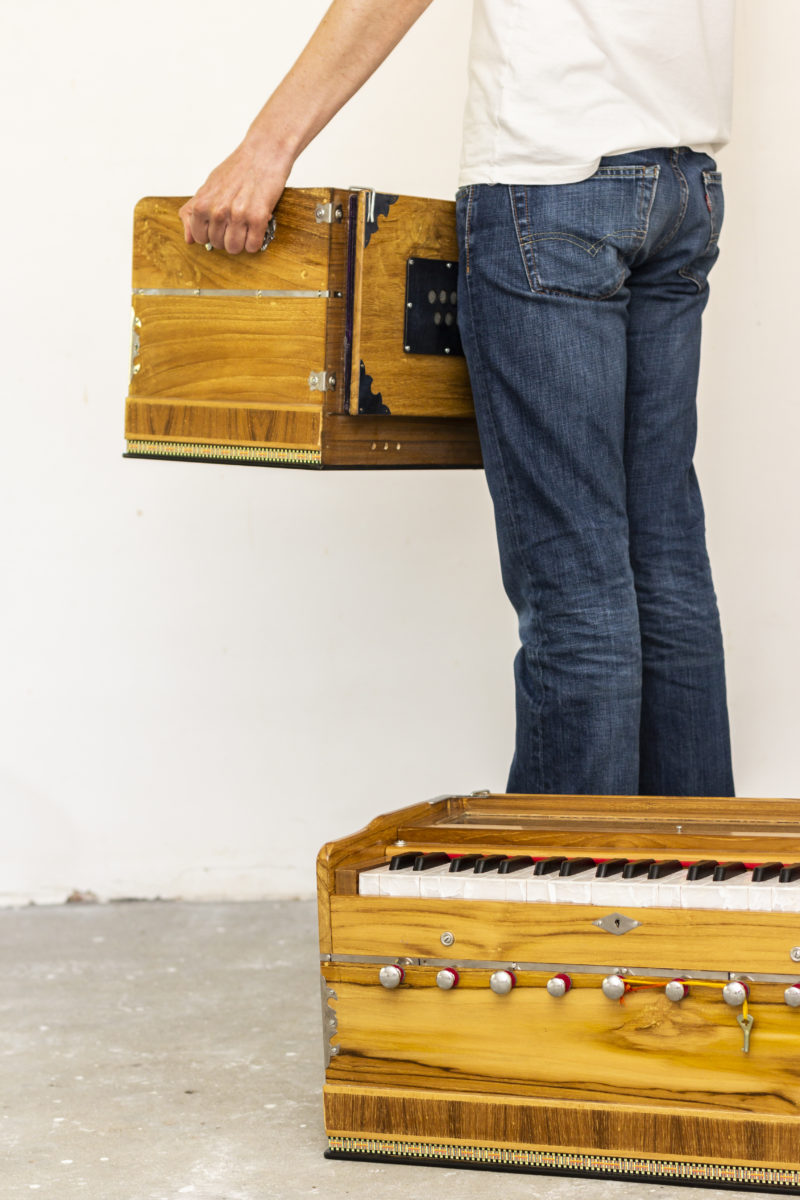
The importance of acoustics
Het Interstedelijk Harmoniumverbond doesn’t want to perform on stage. “We'll try to find locations where we can present this the right way. Most importantly the acoustic character needs to be maintained, we can't have everything amplified. The live debut will take place at Vooruit during the Eastern Daze festival and we’ll try to manage a good set-up where people will be able to move freely around us while we're playing, so they will hear things differently depending on where they are positioned in the venue, having a quadraphonic acoustic sound experience.” The project will be documented on record too. However, the exact nature of the recording process will be a decisive issue. In order to get a good balance between the four voices, the quartet will work with Jürgen De Blonde who shares his vision on this project: “I've already attended one rehearsal to get to know the music, the sound and the pieces. It became clear soon enough that the recording process should approach the music on two levels. One level will focus on capturing the micro sounds and acoustic manipulations through close miking, the other level will focus on capturing the sound as it swirls and twists through the acoustic space. The most challenging part at this stage will be to find an appropriate room that has an interesting effect on the sound, becoming part of the music and contributing to the overall quality of the pieces. Another thing I want to keep in the back of my mind while recording is the possibility of making a surround mix of this material, either to be able to make a surround version of the pieces or to implement in some other surround application. Also because the quartet and the way the players are seated in the physical space, already suggests a surround approach, quadrophonic. So, in conclusion, I want to combine the sound perspective of being in the middle of things with listening from a distance, where it all blends.”
The quartet will support the record with a few performances. The circumstances for these gigs need to be appropriate: good acoustics, a nice place, and off-stage. “In my experience these are the best conditions for a good performance with the kind of music we make. Razen (a band with Brecht Ameel) pays a lot of attention to this aspect and that has lead to some fantastic performances. The acoustic qualities of a space are very important, especially because we want to play as un-amplified as possible in order to fully preserve the original overtones. From the moment you start to amplify things too much, the colour of the sound changes, which also generates different overtones, vibes and dimensions. That is why the acoustic aspect is so important. Even in my solo work I am currently pursuing this. I played my recent performances without amplification whatsoever and that felt really rewarding afterwards. I also have the feeling that people listen differently to non-amplified or quiet music. In the beginning it can take some effort to get into the lower volume level, but once you’ve settled in, you're hearing more details and textures and it’s less tiresome than loud, volume-on-eleven, music.”
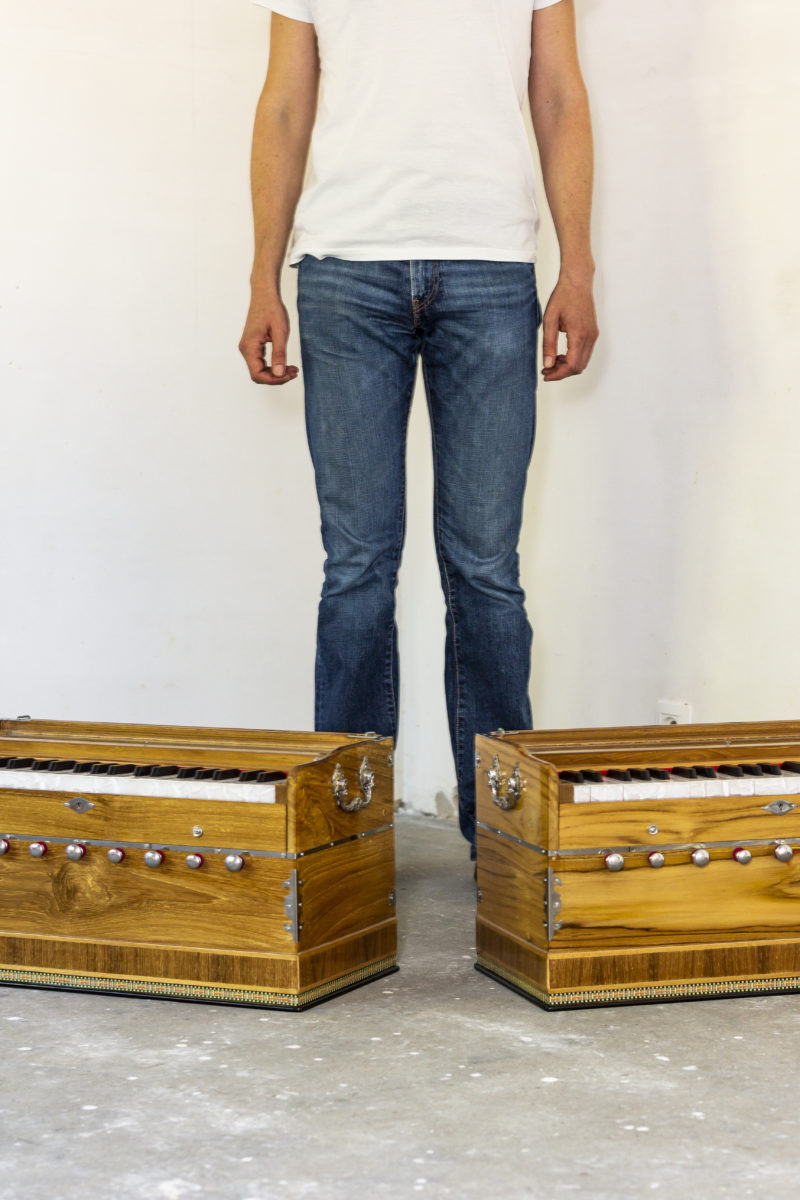
A bit like jazz
Het Interstedelijk Harmoniumverbond is a collaborative project. Therefore, it’s important that Brecht, David and Steve are fully participating in the creative process. “I do think that the four of us have interests that overlap in this project. We share the same vision on the concept of acoustic drone, but each in our own way. Drone is something earthly, no accumulation of effects, loud guitars and smoke machines but rather something universal that has always been there and that you can hear by just being quiet. I have played with Brecht, David and Steve before, so I know how they approach matters and I think their qualities are just what was needed for the quartet.”
“I came up with a few musical ideas, because the concept has been lurking in my head for quite some time. We went from there and in the process everybody added their own ideas and style and that’s how things morphed into their actual shape. It’s a bit like jazz: you lay down some lines, but everyone is free as how to they fill in their part. Two other pieces are the result from free sessions of playing and sound exploring together. But I want to dive deeper in that creating-things-together concept, in the future. I don’t see this as a project where I call the shots and where the others are hired guns, I think too highly of the other three members for that. Four people making music together and each throwing their own ideas and personality in the mix, is how I want it to be. Bottomline is we want to bring good pieces of music. Something that can take people to places, have them wandering off or just fixate them on one particular detail and burn straight into their third eye.” Solos? “No, no solos”.
